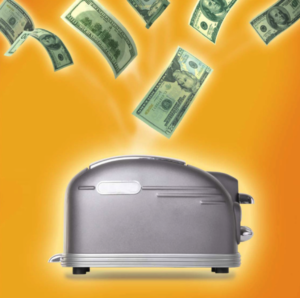 Today’s top story: How to get the most for your old phone. Also in the news: Why starter homes are becoming a thing of the past, five surprising things that could leave you poor, and how to invest your way to a million dollars.
Today’s top story: How to get the most for your old phone. Also in the news: Why starter homes are becoming a thing of the past, five surprising things that could leave you poor, and how to invest your way to a million dollars.
How to Sell Your Old Phone
Because a newer version is always right around the corner.
Why ‘Starter Homes’ Aren’t What They Used to Be
Starter homes are becoming a relic of the past.
5 Surprising Things That Could Leave You Poor
Start with the company you keep.
How to Invest Your Way to $1 Million
The tiny things add up quickly.
 Today’s top story: How not to pick a bank. Also in the news: bank accounts that foster independence for disabled people, how to pick the right college to avoid student debt, and newly updated government rules to help homeowners facing foreclosure.
Today’s top story: How not to pick a bank. Also in the news: bank accounts that foster independence for disabled people, how to pick the right college to avoid student debt, and newly updated government rules to help homeowners facing foreclosure. Today’s top story: Controlling your finances by ignoring short-term frenzies. Also in the news: A new definition of affordable auto insurance, how military members can save money while moving, and how to estimate the value of your travel rewards.
Today’s top story: Controlling your finances by ignoring short-term frenzies. Also in the news: A new definition of affordable auto insurance, how military members can save money while moving, and how to estimate the value of your travel rewards. Building wealth has gotten harder for most people in recent years. But the habits that can make you rich haven’t changed.
Building wealth has gotten harder for most people in recent years. But the habits that can make you rich haven’t changed.